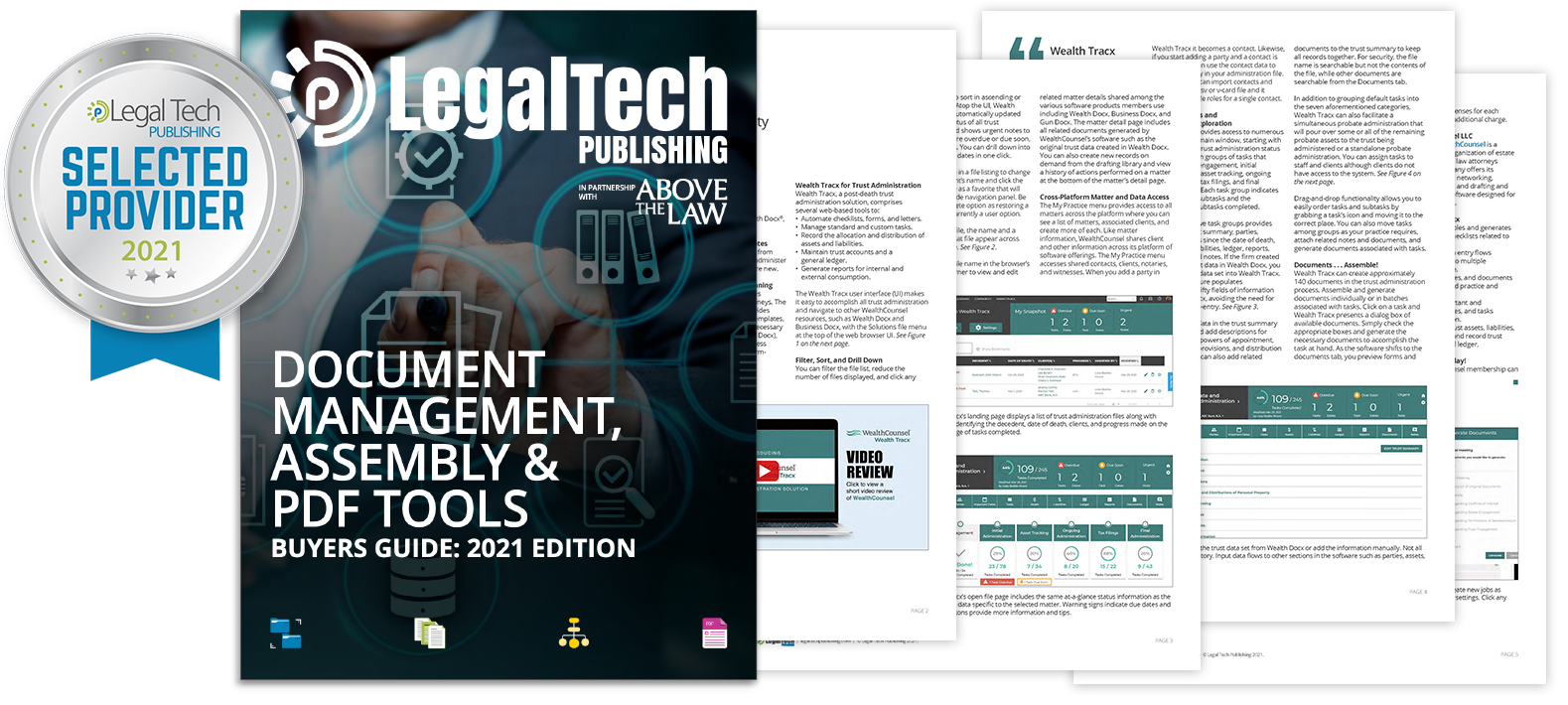
With some 10,000 Americans turning 65 every day, elder law practice represents a huge opportunity for attorneys to expand their firms. Despite the growth of this aging demographic, those age 65 and up may still find it difficult to find an attorney to help them when it comes to legal strategies for estate planning, wills, and other needs.
So why aren’t more lawyers capitalizing on the lucrative and rewarding area of elder law? The lag in growth can largely be attributed to the common myths that continue to circulate about this area of practice. Some of the common myths surrounding elder care include:
Myth #1: Elder Law is scary.
What this usually translates to is, “I don’t know what ‘elder law’ means, it sounds complicated, and I’m working 100 hours a week and have no time to understand what it means.”
The reality: While elder law may be a new and unfamiliar opportunity, there are an increasing amount of education and resources available to help you grow your own firm.
Myth #2: Clients who need an elder law attorney have no money.
This myth is also perpetuated by a lack of understanding as to what an elder law attorney does, and the client base he or she serves.
The reality: One of the most important functions an elder law attorney performs is to create a plan that helps clients protect their hard-earned savings amidst the rising costs of long-term care. This presents ample and mutually beneficial options for both the client and the attorney.
Myth #3 It’s really just about impoverishing clients to get them qualified for Medicaid.
Helping someone qualify for Medicaid or any other government benefit is just one area of elder law.
The reality: If a person of any age becomes seriously ill and needs long-term care, there are three potential options: 1) Pay privately at several thousand dollars a month; 2) Use a long-term care policy if one was obtained prior to the illness or disability (using private funds to make up any difference); or 3) A combination of the first two until the client can qualify for Medicaid.
Medicaid is the only benefit that will pay for long-term care if an individual qualifies financially. One part of being an elder law attorney is helping clients figure out which of the options outlined is best for helping them meet their long-term care needs.So what is elder law really all about?
It’s important to understand that it is defined by the population it serves, not just a single practice area, or set of areas. A client in her 60s, for example, has very different legal issues to consider than a client in her 30s. While not “elderly,” the 60+ client must begin thinking about caregiver agreement documents to dictate what will happen should she need care in the future.
Many of the conversations around aging are difficult to have, even among family members, and unless an elder law attorney invites the conversation, it may never happen. By helping your clients to start having these conversations and address these issues, you can help them avoid worst-case scenarios, such as running out of money while paying for care and being left with Medicaid as an only option.
Deciding to to become an elder law attorney enables you to provide clients of any age with options to help them plan for and pay for long-term care and to determine how decisions will be made pertaining to their assets.
It’s about peace of mind
There are other aspects of elder law, too, which go beyond elder care. Elder law is also about providing peace of mind to families who may have already gone through a crisis. One example is the Johnson family, whose 30-year-old son was in a major car accident that left him with significant disabilities. Without the help of an elder law attorney, the Johnsons would not have realized that their “traditional” estate plan would actually cause their son to lose important government benefits if he inherited money from them outright.
Working with an elder law attorney provided the family with important advice about how to protect parental assets in case of their own health care crisis and how to protect the benefits of their son without disinheriting him.
The multifaceted practice of elder law can allow you to help your clients in a meaningful way that can be both lucrative and personally rewarding. If you are considering expanding your practice, WealthCounsel provides extensive elder law resources and tools that will help you separate myth from reality to position you for success.
If you’d like to learn more about growing your practice or transitioning to elder law, contact us today.



